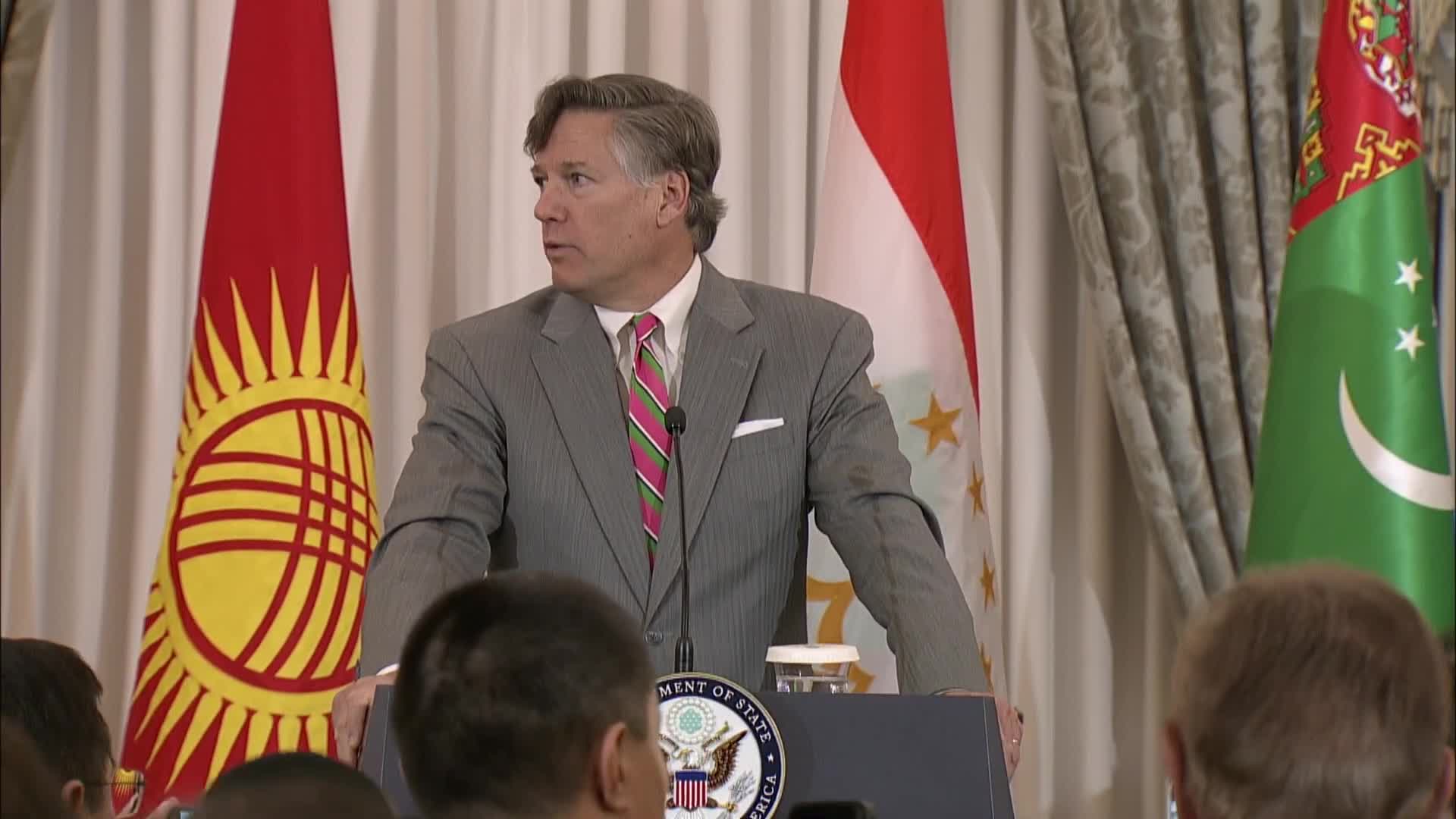U.S. hosts Central Asian leaders, pushes trade ties and repeal of Jackson-Vanik restrictions
Get AI-powered insights, summaries, and transcripts
Subscribe
Summary
The U.S. Department of State hosted leaders and senior representatives from Kazakhstan, the Kyrgyz Republic, Tajikistan, Turkmenistan and Uzbekistan in the Benjamin Franklin Room on Thursday evening as officials outlined plans to deepen economic and diplomatic ties.
WASHINGTON — The U.S. Department of State hosted leaders and senior representatives from Kazakhstan, the Kyrgyz Republic, Tajikistan, Turkmenistan and Uzbekistan in the Benjamin Franklin Room on Thursday evening as officials outlined plans to deepen economic and diplomatic ties.
Deputy Secretary of State Chris Landau, in opening remarks, welcomed the delegations and said the White House has asked the administration to “engage more actively” with Central Asia after roughly 35 years of those countries’ independence. Landau introduced Special Envoy Sergio Gore and described recent trips that highlighted business and partnership opportunities in the region.
Senator Jim Risch, chairman of the Senate Foreign Relations Committee, told the gathering the United States offers Central Asian nations an alternative partner as Russia and China pursue their own agendas. “I have joined Senator Daines and my colleagues in introducing a bill this week that paves the way to lifting outdated barriers to increased economic engagement with our C5 plus 1 partners, and that is the repeal of the Jackson Vanek restrictions,” Risch said.
Sergio Gore, the president’s special envoy for South and Central Asian affairs and currently serving as ambassador to India, said he and Deputy Secretary Landau had visited Uzbekistan and Kazakhstan last week and praised the region’s hospitality and interest in partnerships with American companies. Gore said a business conference at the Kennedy Center planned for the following day would showcase potential investments and trade agreements that could create jobs and export opportunities for U.S. firms.
Secretary of State Marco Rubio, who closed the program, reiterated the administration’s aim to align U.S. and Central Asian national interests through economic development and diversified investment. Rubio said he intends to visit all five countries within the coming year and described the reception and the White House meetings as the start of a renewed, region-wide diplomatic effort.
The remarks emphasized the C5+1 diplomatic platform as a vehicle for cooperation on energy, infrastructure and economic growth. No formal agreements or votes were announced during the reception; speakers framed the event as preparatory to the meetings and business events scheduled at the White House and the Kennedy Center.
Speakers provided several concrete details: the C5+1 platform marked its tenth anniversary this year, Risch described a recently introduced bill to remove Jackson-Vanik restrictions (details of the bill’s text and timeline were not specified at the event), and Gore said he and Landau had visited two of the five countries on a preceding trip (he identified Uzbekistan and Kazakhstan).
